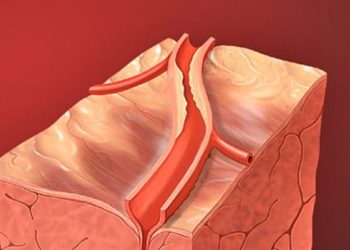No survival difference in lumpectomy and mastectomy for breast cancer [Classics Series]
Image: PD
1. In women with stage I or II breast cancer, there was no significant difference in overall survival in women treated with total mastectomy compared to breast-conserving surgery
2. Adjuvant radiation therapy was associated with reduced ipsilateral recurrence in lumpectomy-treated women
Original Date of Publication: October 17, 2002
Study Rundown: Lumpectomy followed by radiation therapy does not reduce survival and does reduce the recurrence of breast cancer in the ipsilateral breast when compared to radical mastectomy and lumpectomy, respectively. Systemic therapy is now used routinely as adjuvant treatment after surgery to reduce the risk of distant micrometastases.
Primer: Breast cancer is, by far, the most common type of cancer affecting women. These cancers arise from tissues in the breast, with the two most common being ductal and lobular carcinomas. Risk factors for developing breast cancer include increasing age, being female, having a family history of breast cancer, having certain genetic defects (i.e., BRCA1 and BRCA2), and early menarche/late menopause. While the incidence of breast cancer has increased steadily over the past decades, mortality rates have declined significantly since the 1980s, and this may be attributed to increased screening, more effective screening programs, and better treatment, amongst numerous other factors. Nevertheless, breast cancer continues to be a hot topic. Advocacy groups are raising larger and larger amounts of money in support of breast cancer research and treatment, while changes to breast cancer screening guidelines are sure to trigger heavy debate in the media.
Breast cancer treatment consists of some combination of local and systemic therapy, depending on the cancer characteristics and staging. In the 1970s, several studies were conducted to address lingering questions regarding the surgical management of breast cancer. Several randomized controlled trials were conducted to assess the efficacy of breast-conserving therapy. One particular study explored whether lumpectomy, a procedure whereby the tumour was resected with clean margins, with or without radiation therapy was comparable to radical mastectomy. Previous analyses suggested that there were no significant differences in survival between the study groups. This study, published in 2002 in NEJM, reports the 20-year findings of this randomized controlled trial.
Relevant Reading:
- Poggi MM, Danforth DN, Sciuto LC, et al. Eighteen-year results in the treatment of early breast carcinoma with mastectomy versus breast conservation therapy. Cancer 2003;98(4):697-702.
- Bleyer A, Welch HG. Effects of three decades of screening mammography on breast-cancer incidence. NEJM 2012;367:1998-2005.
In-Depth [randomized, controlled study]: This randomized trial followed 1,851 women diagnosed with invasive breast tumours with positive or negative axillary lymph nodes (i.e., stage I or II). Participants were randomized to treatment by total mastectomy, lumpectomy or lumpectomy followed by breast irradiation. These findings were reported after twenty years of follow-up. Breast irradiation was associated with reduced recurrence in the ipsilateral breast in women treated with lumpectomy and who had tumour-free margins on surgical specimens. The benefit of radiation therapy was independent of nodal status. At twenty year follow-up after surgery, 14.3% of women who underwent lumpectomy with radiation had a recurrence in the ipsilateral breast compared to 39.2% in women who underwent lumpectomy alone (P<0.001). No significant difference was found in disease-free survival or overall survival among the three treatment groups.
By Adrienne Cheung and Andrew Cheung, M.D.
© 2013 2minutemedicine.com. All rights reserved. No works may be reproduced without written consent from 2minutemedicine.com. Disclaimer: We present factual information directly from peer reviewed medical journals. No post should be construed as medical advice and is not intended as such by the authors or by 2minutemedicine.com. PLEASE SEE A HEALTHCARE PROVIDER IN YOUR AREA IF YOU SEEK MEDICAL ADVICE OF ANY SORT. Content is produced in accordance with fair use copyrights solely and strictly for the purpose of teaching, news and criticism. No benefit, monetary or otherwise, is realized by any participants or the owner of this domain.




